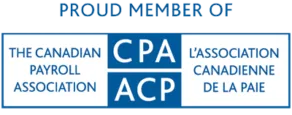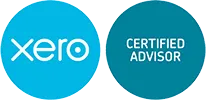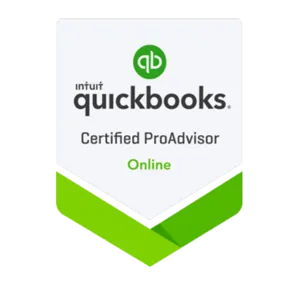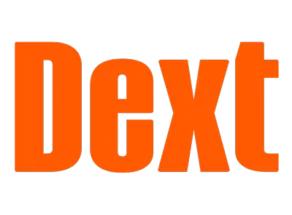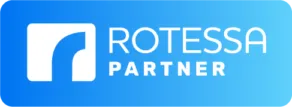OUR BLOG
Your hub for insightful and actionable content to help you unlock the potential of your business.

How Profit First can Help You Prepare for a Recession
Everyone is talking about it, the news, your neighbours, your family…and now us. That’s right we are going to talk about the big “R” word – recession. First we will start with the what a recession is and the causes and from there we will share with you how we can help you prepare your business for a…rrrrr….rrrrr….recession.
What is a recession?
Economists say a recession is defined as a period of two consecutive quarters where gross domestic product (GDP) is lower than the previous quarter. This lowered GDP is also accompanied by a jump in the unemployment rate. This results in an increase in the price of goods and services.
In a recession, consumer spending drops, leading to lowered economic activity. The government may intervene using different methods such as cutting interest rates.
In Canada, an independent committee analyzes the economy to determine whether a recession is taking place. It considers how widespread and deep the economic slowdown is and for what period of time.
What causes a recession?
Recessions occur when something happens to disrupt the economy, such as:
Unpredicted events. Covid-19 is our most recent example of unpredictable events.
Inability to repay debt. Often caused by high interest rates.
Unrealistic and sudden growth of assets. Remember the dot-com bubble?
Industrial or technological change. A historical memory of this would be they industrial revolution.
Sudden rise of prices (inflation).
Abrupt drop of prices (deflation).
A problem with a natural resource such as oil.
Recessions are part of the normal ups and downs of our economy and unfortunately are part of the business cycle. Recessions traditionally occur once every decade and at times they can occur more often. In the last 50 years, Canadians have experienced 6 recessions.
What does a recession mean to your business?
A recession is like a chain reaction, with each consequence leading to further consequences. Consumer spending declines, many things go down in value such as businesses, the stock market, resources, etc. This often results in job losses, which contributes to the drop in spending.
Job loss means people have to draw on their savings, hopefully they have some, to pay for essential items such as food, housing and transportation.
What does this mean for your business and your clients’ businesses? Your guess is as good as ours, but the number one thing you can do for your firm is put together a plan to make sure you can ride out this storm and remain healthy when it is over.
There are several ways a recession could have a direct impact on your business. Here’s a few impacts to keep an eye on.
Lower spending
As we mentioned a recession can led to people spending less money so your sales may drop. Each business is different, so expect the impact to your business may vary depending on what your business does.
Slower payment
When the economy slows, business and consumers can find themselves in a cash crunch. This means your clients may be slower to pay you and suppliers may ask to be paid more quickly. If your cash flow is being squeezed, you’ll need to keep a close eye on your receivables.
Inflation
Usually when demand drops, prices tend to go down, but that’s not always the case (this is called stagflation). When this occurs your business may have to pay more for raw materials, equipment and other resources. Unfortunately, this could occur as your revenues are dropping.
Rising interest rates
During a recession, interest rates are often kept low to stimulate spending. But they can also be hiked to fight inflation, which we have been seeing occur in 2022 and 2023. If your business uses debt as a way to finance your operations, a hike in interest could put your business under more pressure. Particularly if you are renewing a fixed rate or if your interest rate is variable, you’ll feel the impact when the rate goes up.
Difficulty obtaining financing
Recessions are known to create a tightening in lending. This may make it harder for businesses to borrow money. This is unlikely to happen unless the recession huge and dire.
Widespread economic uncertainty
The uncertain economic times during a recession make businesses rethink their plans, new assets and projects (adding fuel to the recession). Some hit the pause button on expansion plans, new assets or marketing campaigns.
How Profit First can protect you
Using the Profit First system can help protect your business from a recession by providing a framework for managing cash flow and ensuring that your business is profitable, even during difficult economic times. Here are some ways in which it can help:
Encourages prioritizing profitability: Profit First emphasizes the importance of prioritizing profitability over revenue growth. By focusing on maximizing profits, you’ll have a better chance of weathering a recession, which often involves a decrease in revenue.
Ensures cash reserves: Profit First encourages businesses to build up cash reserves by setting aside a certain percentage of revenue for various purposes, such as taxes, profit, and emergencies. This can help you withstand economic downturns by providing a cushion of cash to fall back on.
Promotes expense management: By dividing revenue into different accounts, Profit First helps you manage your expenses more effectively. This can help you avoid overspending and maintain a healthy cash flow, even during tough times.
Increases financial visibility: Profit First provides a clear picture of your business’s financial health by tracking revenue and expenses in real-time. This can help you identify potential problems early on and make informed decisions about how to allocate resources.
Overall, Profit First accounting can help protect your business from a recession by ensuring that you are maximizing profits, building up cash reserves, managing expenses effectively, and maintaining financial visibility. By implementing these strategies, you’ll be better prepared to weather economic downturns and come out stronger on the other side.
How you can get started with Profit First
We have developed a list on how to get started with Profit First quickly:
Read the book. The first thing we recommend is reading . If you are still unsure, take a few moments one morning to download and read the first 2 chapters on us. Look, Mike is an incredibly generous guy, and he gives the system away for free. Everything you need to implement is right there in the book.
If implementing on your own is a bit more challenging than you expected, consider working with a Profit First Professional. Working with a professional will allow for a quicker implementation timeline and an accountability partner and coach. Consider working with us if you want a partner to help you implement the Profit First system. Book a non-obligation assessment. We would love to help.
Alternatively we offer a 6 hour online option for you to learn the basics of Profit First. Get all of the details here.
Set up 4 bank accounts: Profit, Owners Pay, Taxes, and Operating Expenses. You will need to decide the revenue amounts to be dispersed in specific percentages to each account. Disbursements should occur in the order given (Profit, Owners Pay, Taxes, Operating Expenses).
Whether you are implementing Profit First on your own or with the help of a Profit First Professional like us, start out easy. Start with just 1% of your revenue going to profit, etc. Grow it from there. If you want to figure out if you can go higher with your percentages, book a call, and we can help you!


